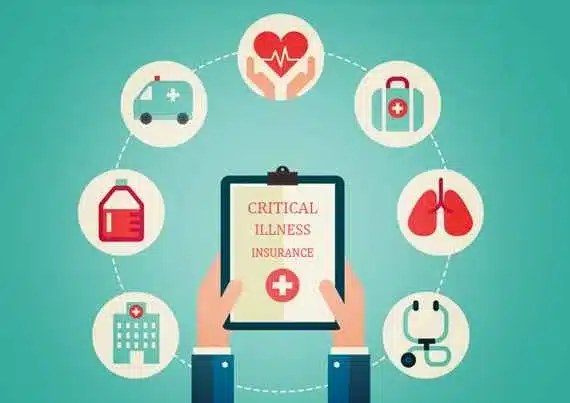Table of Contents
A type of insurance known as critical illness insurance offers financial security in the case of a severe medical diagnosis. When a specific illness or medical condition is diagnosed, necessary illness insurance pays out a lump sum payout, unlike regular health insurance, which usually covers ordinary medical bills and hospitalization. Those looking for complete protection against unforeseen medical emergencies must comprehend what critical illness insurance covers and why it is vital to financial planning. This applies to both individuals and families.
Overview of Coverage: What Is Included in Critical Illness Insurance?
A variety of significant medical illnesses are usually covered by critical illness insurance, though this can vary based on the exact policy and insurance company. Nonetheless, the majority of policies cover significant surgeries like bypass surgery for coronary artery disease as well as common ailments like cancer, heart attacks, strokes, and organ failure. Paralysis, kidney failure, Parkinson’s illness, and Alzheimer’s disease may also be covered by specific policies. It’s crucial to thoroughly check that the conditions covered by the policy correspond with your unique needs and health concerns.
Why You Need Critical Illness Insurance for Financial Protection
Critical illness insurance protects against the high costs of treating major illnesses and medical disorders. When coping with a critical illness, people may have to pay a large amount out of pocket for things like deductibles, copayments, and non-covered treatments—even if they have comprehensive health insurance. Furthermore, losing money due to prolonged time off from work might make recovery period financial hardship even worse.
By paying out a lump sum payment upon the diagnosis of a covered ailment, critical illness insurance helps to reduce these expenses. This benefit can be used to pay for medical costs not covered by health insurance, like travel costs for specialized care, experimental treatments, or alternative therapies. Moreover, during the healing phase, the lump sum payout can help replace lost income and pay for household bills, a mortgage, and other everyday costs. This frees recipients to concentrate on their health and well-being rather than worrying about money.
Peace of Mind: Planning for the Unexpected
The peace of mind of being prepared for the unexpected is one of the main reasons for purchasing critical sickness insurance. No matter an individual’s age, way of life, or family medical history, grave illnesses can manifest suddenly and without warning. In the case of a medical emergency, having critical illness insurance in place gives you and your loved ones the peace of mind that you will be financially secure, freeing you to concentrate on your healing and rehabilitation rather than worrying about how you will pay for treatment.
Furthermore, critical illness insurance might support preserving your long-term financial objectives. A severe illness or medical emergency could wipe out retirement money, savings, and other investments if you don’t have enough protection. This could throw off your financial plans and leave you open to more financial difficulties. You may secure your hard-earned lifestyle and financial future by taking proactive measures to get severe sickness insurance.
Ultimately, critical illness insurance offers crucial protection against the financial effects of serious medical diagnoses, making it an asset in financial planning. People can protect their economic well-being and feel more at ease in the face of life’s uncertainties by proactively watching it and realizing the value of critical sickness insurance in reducing financial risk. Purchasing necessary illness insurance is a way to safeguard not just your money but also your future, your loved ones, and your standard of living.



